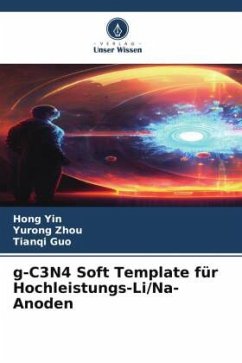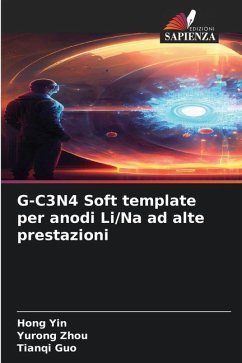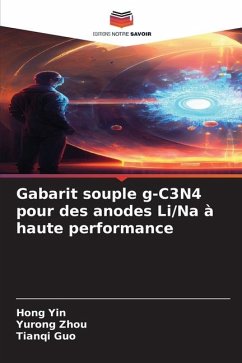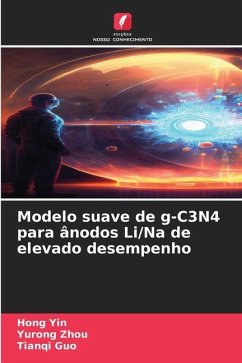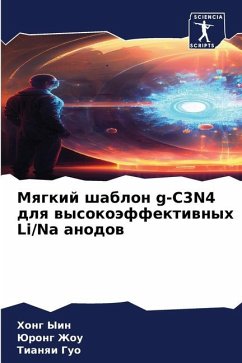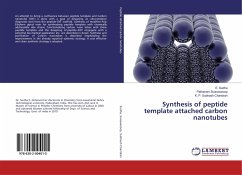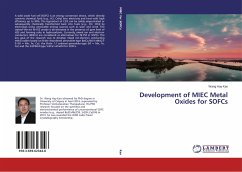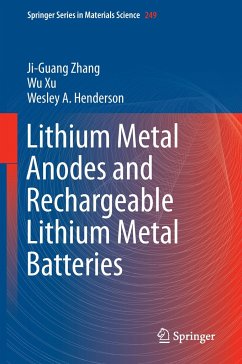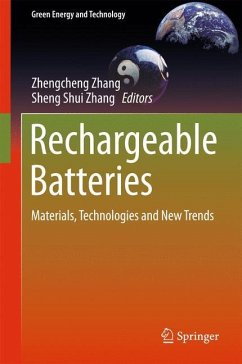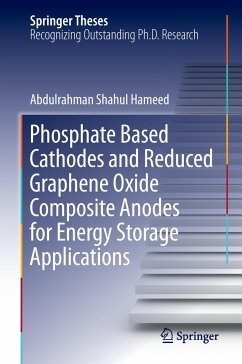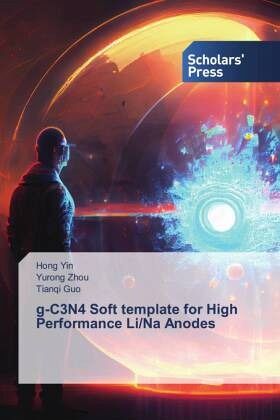
g-C3N4 Soft template for High Performance Li/Na Anodes
Versandkostenfrei!
Versandfertig in 6-10 Tagen
49,99 €
inkl. MwSt.

PAYBACK Punkte
25 °P sammeln!
The global economy's growth increases energy demand and environmental pollution. Scientists pursue renewable energy sources, but their intermittent nature requires high-performance energy storage. Lithium-ion batteries (LIBs) provide high energy density, widely used in electronics and EVs. However, lithium's scarcity and uneven distribution raise sustainability concerns. Sodium, abundant globally, offers an alternative. To enhance Li/Na-storage, strategies involve combining electrode materials with conductive carbon compounds and doping carbon matrix composite electrodes with nitrogen. Layered...
The global economy's growth increases energy demand and environmental pollution. Scientists pursue renewable energy sources, but their intermittent nature requires high-performance energy storage. Lithium-ion batteries (LIBs) provide high energy density, widely used in electronics and EVs. However, lithium's scarcity and uneven distribution raise sustainability concerns. Sodium, abundant globally, offers an alternative. To enhance Li/Na-storage, strategies involve combining electrode materials with conductive carbon compounds and doping carbon matrix composite electrodes with nitrogen. Layered graphitic carbon nitride shows promise for sodium-ion batteries, but limited conductivity requires consideration. Combining it with polypyrrole, known for dual conductivity, holds potential for optimizing electrode materials.



